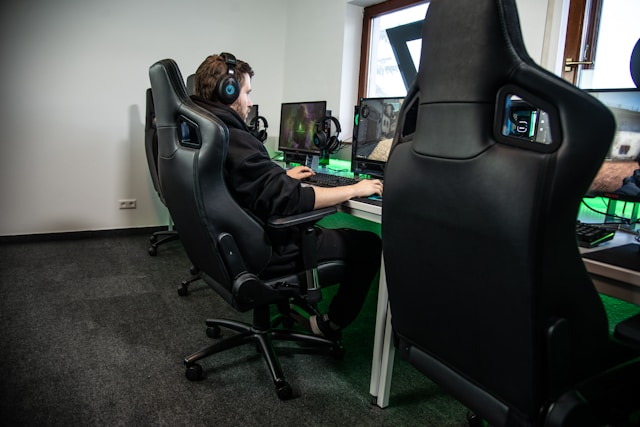Online gambling has come a long way from static websites and simple interfaces. The latest evolution is Virtual Reality (VR) casinos, which are redefining the way players interact with digital gambling platforms. These immersive environments offer more than just games—they create realistic casino experiences from the comfort of home.
With high-definition 3D environments, customizable avatars, real-time social interaction, and lifelike sound effects, VR casinos are making traditional online gambling feel outdated. In this article, we’ll explore how VR is transforming the online gambling industry, what it offers players, and what the future might hold.
Immersive Gameplay Like Never Before
One of the most noticeable advantages of VR casinos is full sensory immersion. Instead of clicking through menus and watching reels spin on a 2D screen, VR players are placed inside a virtual casino environment where they can:
- Walk through gaming floors
- Sit at roulette or blackjack tables
- Interact with slot machines in 3D
- Handle chips and cards using hand controls
This adds an element of realism that bridges the gap between physical and digital gambling. The sense of presence enhances the experience, making every decision and action feel more tangible.
Real-Time Social Interaction

VR casinos bring back the social side of gambling—a feature often missing in online platforms. In virtual spaces, players can:
- Interact with others through voice chat
- Use avatars with gestures and expressions
- Join multiplayer tables and private rooms
- Watch other players win or celebrate in real time
These social features mirror the dynamics of a land-based casino, making the environment more engaging and emotionally rewarding. This community aspect appeals to players who miss the energy and camaraderie of in-person gambling.
New Opportunities for Casino Game Development
VR also opens the door for innovative game design. Developers are no longer limited to flat screens—they can design environments and mechanics that are more dynamic and interactive. For example:
- VR slots with physical reels and themed rooms
- Skill-based challenges where players must interact with the environment
- Live dealer tables that feel like private VIP lounges
This not only elevates gameplay quality but also allows for unique player experiences, keeping users engaged longer and returning for more.
Challenges and Limitations

While VR casinos offer exciting possibilities, there are still barriers to widespread adoption:
- Cost of hardware: High-quality VR headsets and gaming PCs can be expensive.
- Limited game selection: Most casinos still offer a small number of VR-optimized games.
- Motion sickness and fatigue: Some users experience discomfort during extended VR sessions.
- Internet speed and latency: Smooth performance requires a strong and stable connection.
Despite these hurdles, the technology is improving rapidly, and VR casinos are likely to become more accessible and diverse in the coming years.
Final Thoughts: The Future Is Virtual
VR casinos represent a significant leap forward in how we experience online gambling. They bring immersive visuals, real-world social dynamics, and innovative gameplay into a single platform—blurring the lines between digital and physical casinos.
While VR gaming is still in its early stages, the growth of technology and increased interest in metaverse-style experiences signal a bright future. For players who crave more than just a spin or a click, VR casinos offer a truly next-level way to gamble online.
